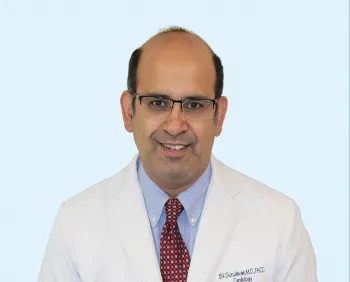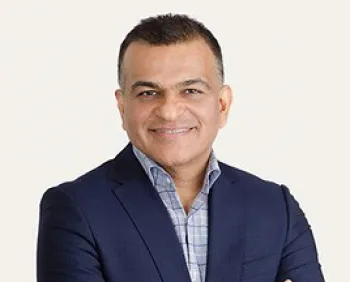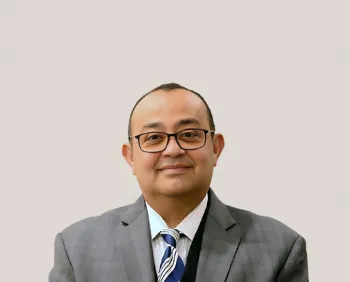
Be Heart Smart
Key areas of Cardiology and heart health specialized care
What is cardiology?
Cardiology is a clinical specialty and a department of internal medicine concerned with issues of the heart. It deals with the projection and treatment of such situations as Inherited heart defects, Coronary artery disease, Electrophysiology, Heart failure, and Valvular heart ailment. Subspecialties of the cardiology discipline include Cardiac Electrophysiology, Echocardiography, Interventional Cardiology, and Nuclear Cardiology.
How does the Cardiovascular system work?
The simple functioning of the cardiovascular structure consists of the manner the coronary heart processes oxygen and nutrients in the blood, which is known as a coronary movement. The circulation system includes coronary arteries and coronary veins. Cardiology is a field that treats and studies a variety of cardiovascular disorders. One of these is a serious coronary syndrome, which contains a wide range of signs of myocardial infarction. Other common conditions include Angina Pectoris, Atherosclerosis, Coronary heart disease, and Restenosis. Cardiology's broader categories of disorders include cardiac arrest, disorders of the myocardium, or heart muscle, such as cardiomyopathy, disorders of the pericardium, or heart's outer lining, such as pericarditis, disorders of the heart valves, such as the aortic valve, mitral valve, pulmonary valve, and tricuspid valve, and congenital heart defects, which range from atrial septal defect to venous Insufficiency.
In cardiology, various types of balloons and defibrillators, as well as a pacemaker and a stethoscope are used. In the field of cardiology, artificial hearts are also used and studied.
Cardiologists and their wisdom of knowledge
Cardiologists are experts in cardiology. Coronary artery bypass surgery, percutaneous coronary intervention, percutaneous transluminal angioplasty, and stenting are some strategies used by cardiologists to treat cardiovascular diseases. Blood tests, cardiac stress tests, echocardiography or electrocardiography, computed tomography, and magnetic resonance imaging techniques are all used by cardiologists to diagnose cardiovascular disorders.
Heart Attack Symptoms Every Adult Should Know
Recognizing heart attack symptoms quickly can save lives. Classic symptoms include chest pain, discomfort in the arm, neck, or jaw, shortness of breath, sweating, nausea, and sudden fatigue. Not everyone experiences the same warning signs, women and older adults may show unusual symptoms like stomach pain or lightheadedness. Cardiologists stress the importance of calling emergency services immediately if these symptoms occur. Early intervention significantly reduces the risk of permanent heart damage or death.
Importance of keeping your heart strong
As the number one cause of death, heart disease is commonly known as the silent killer worldwide amongst men and women. Leading to potentially fatal acute conditions such as a heart attack can often go unnoticed. According to the latest survey by WHO 17.9 million people die of heart disease worldwide every year. It is important to have your heart checked regularly, if there is any complication detected early heart disease is key to living a healthy and lengthy life.
What does a cardiologist do on your first visit?
You can trust our veteran cardiologist finds from the doctor list, who diagnoses and treats a wide range of heart problems. As part of your first visit, your cardiac-care knowledge will be idiomatic, co-opted, and excellent. Your care team will offer the most progressive testing, finding, and medical management for your cardiac health and will afford an integrated care plan that retains everybody on an equal page and forward of the curve. When you suspect a medicine doctor will refer you to a cardiologist specialist. Our cardiology specialist diagnoses and treats an extensive range of cardiac disorders in kids and adults.
Heart Checkup and Preventive Screenings
A heart checkup is one of the most important steps to maintaining cardiovascular health. Preventive screenings may include blood pressure checks, cholesterol testing, ECG, echocardiograms, and stress tests. These screenings help detect early signs of heart disease before symptoms appear. Regular preventive care reduces the risk of severe conditions like heart attacks or strokes. Cardiologists often recommend annual screenings for people with risk factors such as diabetes, obesity, smoking history, or family heart disease.
Key role of a Cardio vascular doctor
In the diagnosis and treatment of illnesses of the cardiovascular system, a cardiologist is a physician who specializes in this disease for precise treatment which includes the heart and blood vessels.
Our Cardiovascular Doctors will take the time to attend to and comprehend your signs and concerns, positive medical dealing commence with precise analysis. Could detect precisely what reasons for your symptoms you may undergo various exams so that your cardiologists exactly identify and manage your disease. That is why, whatever you do put your heart into everything. So do we! You can count on the Cardiology experts at our clinic when you have a heart or vascular challenge.
To make your heart strong again, to ensure your safety is the top priority we get into the heart of the problem and we provide excellent upkeep since we have a similar aim as you.
Can a cardiologist perform surgery?
Cardiologists are barring a suspect within the well-versed medical classified physician. Merely outlined a cardiologist is a medical professional whose principal duty is to ascertain cardiac problems and serve them with precise drugs. Cardiovascular Doctors could also do an assortment of heat artery measures. This is normally done by piercing the patent's groin with a needle.
It is key to stress, however, that cardiologists are not fit to do surgery. Merely qualified medical personnel who have received specific training for such operations are permitted to do heart surgery.
While cardiologists cannot do surgery, they could undertake various specialized treatments. For example, stenting in the vein of the heart could be used by an interventional cardiologist who unblocks blocked arteries. They can also graft modern gadgets into the heart of patients with cardiac problems. A cardiologist can also undertake operations to exact rhythm disturbances, such as the use of defibrillators, pacemakers, and techniques for various cardiac diseases.
Structure of cardiovascular illness
The word cardiology has ensued from the Greek words CARDIA which mentions the heart and logy means the education of Cardiology is a part of medicines that concernments sicknesses and disorders of the heart, which may series from inherited imperfections through to acquire heart diseases as such coronary artery disease and blocked heart failure.
Basic Functioning:
The way the heart processes oxygen and nutrients in the blood is the basic functioning of the cardiovascular system which is called coronary circulation.
Myocardial Infraction called:
The movement system consists of coronary arteries and coronary veins. Way of Treated and studied in the field of cardiology there is a range of disorders of the cardiovascular system. Among Encompasses, a broad range of myocardial infraction symptoms is acute coronary syndrome.
Common disorder and treatment:
The other common disorders are Angina Pectoris, atherosclerosis, coronary heart disease, and restenosis. Various types of devices are used such as balloons and defibrillators, a pacemaker, and a stethoscope in the treatment of cardiology.
Types of heart condition
There are several diverse kinds of cardiovascular illnesses. Among that four kinds of types are defined as under.
Coronary heart disease
Coronary heart disease happens when the stream of oxygen that comes to the blood is blocked or reduced to the heart muscle.
This sort of strain increased the heart and could guide to:
Because of the bloodstream to the heart muscle constraining, angina instigated chest pain
When unexpectedly congested bloodstream to the heart muscle began a heart attack.
When! Everywhere in the body blood is not extended due to the heart being unable to pump blood correctly
Strokes and TIAs
When the bloodstream to part of the brain is cut off a person suffers a stroke. By which the brain could damage and possibly die. Such an attack is fairly similar to a transient ischemic attack (also called a TIA or mini-stroke) but in this case, blood flow to the brain is only temporarily disrupted.
The key indications of a stroke or TIA could be not to forget the term FAST, which is located for the face might have declined on one side, the attached person might be incapable to smile, or their mouth or eye might have dropped. Since faintness or unresponsiveness in one arm, the person might not be capable of raising both arms and keeping them. The person might not be capable of the conversation and speaking at all and might be garbled, if you experienced these marks or indications, it is stage to contact the physician without let.
Marginal arterial ailment
Generally, the legs and veins obstruct peripheral arterial illness. Lifeless or spasm leg pain, hair loss on legs and feet, faintness in the legs, and never-ending ulcers (open sores) on the feet and legs.
Aortic disease
Aortic illnesses are a cluster of situations harming the aorta. This is the major blood vessel in the physique, which transmits blood from the heart to the additional part of the body.
Risks of Cardio vascular disease
The precise reason for Cardio Vascular Disease isn't comprehensible, nonetheless, there are tons of things that could upsurge your jeopardy of getting it. These are named -hazard issues.
Maximum danger matters of cardiovascular illness are set as under:
Hypertension:
Hypertension is one of the utmost vast thread troubles for Cardio Vascular Disease If your blood pressure is surge high, it could harm your blood vessels.
Smoking:
Smoking and extra tobacco habit is also an important hazard issue for cardiovascular disease. The injurious materials in tobacco could harm and thin your blood vessels.
High cholesterol:
Fat is a greasy material established in the blood. If you have high fat, it could reason your blood vessels to thin and increase your danger of rising a blood clot.
Diabetes:
High blood sugar levels can damage the blood vessels, making them more likely to become narrowed. For the person who suffers from the lifelong condition of diabetes there, the blood sugar level becomes too high. The risk for those people who factor in type two diabetes is overweight or obese.
Idleness:
High cholesterol levels and being overweight are more likely that you will have high blood pressure if you are reluctant to exercise regularly. The reason for this is the hazard issues of Cardio Vascular Disease.
Genetic records of Cardio Vascular Disorder
Family history of CVD risk of developing it increased. If your family members before the age of 55 for father and brother and 65 for mother and sister are recorded for cardiovascular diseases then your doctor may suggest checking your blood pressure and cholesterol level.
Other risk factors
-
In addition, when people are over 50 their risk of developing CVD increases as they get older.
-
Men are earlier than women likely to develop.
-
High cholesterol and high blood pressure are caused by an unhealthy diet.
-
Consumption of excessive alcohol also increases your cholesterol and blood pressure levels and contributes to weight gain.
Best Heart Health Clinics in USA
Many patients search for the best heart health clinics in the USA to ensure they receive top-quality care. Leading clinics are known for advanced technology, experienced cardiologists, and comprehensive cardiac care programs. They often provide services such as interventional cardiology, heart surgery, rehabilitation, and lifestyle counseling. Choosing the right clinic means not only access to treatment but also long-term support for a healthier lifestyle and preventive care.
Best Cardiologist in New York City
New York is home to some of the best cardiologists in NYC, offering cutting-edge treatments and access to leading hospitals. Patients often seek top-rated cardiologists in NYC for complex conditions like congenital heart disease, heart failure, and arrhythmias. These specialists use advanced imaging, minimally invasive procedures, and the latest research-backed therapies. Choosing the best cardiologist ensures expert diagnosis, compassionate care, and long-term heart health management.
Advanced Cardiac Care and Surgery Centers
Modern cardiac surgery centers provide advanced treatment options for patients with serious heart conditions. These centers specialize in bypass surgeries, valve replacements, transplants, and minimally invasive heart procedures. Advanced centers are equipped with the latest medical technology and staffed by experienced surgeons and cardiologists. Patients who require surgical interventions should seek accredited centers that combine surgical expertise with comprehensive post-surgery rehabilitation programs.
Major self-control of cardiovascular disease
Not Smoking:
It is very wise for your health not to use tobacco in any form. Tobacco use can slow you down, make you sick and shorten your life by uncompromising habit. One way it does contribute to heart disease.
Obesity:
Keeping weight and in good physical shape. Surplus weight and an outsize waist dimension equally assist in heart disease, in addition to several additional health difficulties.
Physical Exercise:
Excellent ways to prevent heart disease and many other diseases and conditions are routine exercise and physical activity. Apart from this, several of us become less active as we become older.
Healthy diet:
For years studies into connections between weight-reduction plans and coronary heart ailment focused on personal vitamins like:
-
Cholesterol,
-
Varieties of fat
-
Particular vitamins and minerals.
This work has been revealing, but it has also generated some lifeless ends, along with myths and confusion approximately what constitutes a heart-wholesome eating schedule. That’s because humans eat meals, not nutrients.
Benefits of medication
It is recommended to take medication to reduce your risk when you have a particularly high risk of developing cardiovascular disease. Drugs that could be suggested comprise statins for minor hypertension, cholesterol stages, low-dose aspirin to prevent blood clots, and tablets to reduce blood pressure.
Find a Cardiologist Near Me
When people experience chest pain, shortness of breath, or other concerning heart symptoms, they often search for a cardiologist near me. Finding a local specialist is important because heart conditions require timely diagnosis and regular monitoring. Local cardiologists provide convenience for follow-up visits, access to testing facilities, and personalized treatment plans. Patients should look for board-certified cardiologists with good patient reviews and access to modern diagnostic tools.
Cardiology Consultation Cost and Insurance Coverage
Many patients are concerned about the cardiology consultation cost when visiting a specialist. In the USA, costs can vary depending on the location, clinic, and insurance coverage. On average, an initial consultation may range from $200 to $500 without insurance, while diagnostic tests add to the expense. Most insurance plans, including Medicare, cover cardiology visits if deemed medically necessary. Patients should check coverage details, co-pays, and out-of-pocket costs before scheduling.

Swaminath Gurudevan MD
Cardiology
Overview Dr. Swaminatha Gurudevan is a cardiologist in New York City. He is affiliated with Mount Sinai Morningside Hospital. Dr....
Read moreServices
Opening Hours
- Monday
- 9AM – 6PM
- Tuesday
- 9AM – 5PM
- Wednesday
- 9AM – 4PM
- Thursday
- 9AM – 6PM
- Friday
- 9AM – 4PM
- Saturday
- 9AM – 2PM
- Sunday
- Closed
Make an appointment
Some Frequently Asked Questions (FAQs)
The patients who were asked about the physician in question expressed high levels of satisfaction. The physician is known for providing attentive and careful treatment to her patients. Additionally, she sets aside ample time to examine the case history to explain the current state of the patient, so that it is easy for them to understand.
Absolutely! Click on the Orange banner on the right, that says "Make an Appointment". Additionally, doctor’s Google business profile has a link to the appointment page, also.
Dr. Sharmeen, a dedicated Primary Care Physician, strives to foster good health and prevent illnesses within the Brooklyn community. Whether it's conducting routine check-ups, addressing common ailments like colds and coughs, or managing more serious symptoms, she offers comprehensive treatment, guidance, and collaborates closely with her team of specialists to ensure comprehensive care. Her services encompass a wide range of medical needs, including hypertension management, annual physicals, allergy consultations, pediatric care, arthritis, cholesterol management, obesity, respiratory infections, strep throat, rashes, minor injuries, and overall well-being for patients of all ages, from young children to adults.
Dr. Sharmeen Sultana's primary language of practice is English, she is fluent in Bengali, she understands and is able to communicate in Hindi and Urdu. In addition, there are Arabic and Spanish speaking members in the staff.
Doctor Sultana is family physician; her primary goal is to promote health and prevent diseases. She is a top-rated Primary Care Physician in Brooklyn. She provides comprehensive care for every patient regardless of age, gender, illness, or organ system. By collaborating with a team of specialists conveniently located within her practice, she seamlessly integrates and prioritizes multiple concerns, aiming to provide holistic and synthesized solutions for her patients.
While Dr. Sultana gladly accepts all major insurances, it is advisable to consult with the front desk attendant to obtain confirmation. As regulations and compliance requirements can undergo changes without prior notice, it's always prudent to verify the current status of accepted insurances.
Dr. Sharmeen Sultana has a rating of 4.50/5 from 164 patients (on health.usnews.com) who have reviewed her which indicates that most of the patients are satisfied with her services. However, there were areas where patients gave lower ratings regarding time spent on patients and exam thoroughness. Based on patient compliance and outcomes Dr. Sultana has a rating of 4 out of 5 indicating that patients will see her again and are satisfied with her treatment results. Dr. Sharmeen Sultana is rated 4 out of 5 as a cause of action, and we find the patients to be friendly and thoughtful. Dr. Sultana generally receives positive reviews from patients, although there are some differences in patient opinions. It's crucial to keep in mind that personal perspectives can differ, and seeking guidance from a healthcare expert from a wide range of sources is always a wise choice.
Welcome to our Privacy Policy page! When you use our web site services, you trust us with your information. This Privacy Policy is meant to help you understand what data we collect, why we collect it, and what we do with it. When you share information with us, we can make our services even better for you. For instance, we can show you more relevant search results and ads, help you connect with people or to make sharing with others quicker and easier. As you use our services, we want you to be clear how we’re using information and the ways in which you can protect your privacy. This is important; we hope you will take time to read it carefully. Remember, you can find controls to manage your information and protect your privacy and security. We’ve tried to keep it as simple as possible.
Our customers have the right to access, correct and delete personal data relating to them, and to object to the processing of such data, by addressing a written request, at any time. The Company makes every effort to put in place suitable precautions to safeguard the security and privacy of personal data, and to prevent it from being altered, corrupted, destroyed or accessed by unauthorized third parties. However, the Company does not control each and every risk related to the use of the Internet, and therefore warns the Site users of the potential risks involved in the functioning and use of the Internet. The Site may include links to other web sites or other internet sources. As the Company cannot control these web sites and external sources, the Company cannot be held responsible for the provision or display of these web sites and external sources, and may not be held liable for the content, advertising, products, services or any other material available on or from these web sites or external sources.
You can view or edit your personal data online for many of our services. You can also make choices about our collection and use of your data. How you can access or control your personal data will depend on which services you use. You can choose whether you wish to receive promotional communications from our web site by email, SMS, physical mail, and telephone. If you receive promotional email or SMS messages from us and would like to opt out, you can do so by following the directions in that message. You can also make choices about the receipt of promotional email, telephone calls, and postal mail by visiting and signing into Company Promotional Communications Manager, which allows you to update contact information, manage contact preferences, opt out of email subscriptions, and choose whether to share your contact information with our partners. These choices do not apply to mandatory service communications that are part of certain web site services.
Our web site uses the data we collect for three basic purposes: to operate our business and provide (including improving and personalizing) the services we offer, to send communications, including promotional communications, and to display advertising. In carrying out these purposes, we combine data we collect through the various web site services you use to give you a more seamless, consistent and personalized experience. However, to enhance privacy, we have built in technological and procedural safeguards designed to prevent certain data combinations. For example, we store data we collect from you when you are unauthenticated (not signed in) separately from any account information that directly identifies you, such as your name, email address or phone number.
We share your personal data with your consent or as necessary to complete any transaction or provide any service you have requested or authorized. For example, we share your content with third parties when you tell us to do so. When you provide payment data to make a purchase, we will share payment data with banks and other entities that process payment transactions or provide other financial services, and for fraud prevention and credit risk reduction. In addition, we share personal data among our controlled affiliates and subsidiaries. We also share personal data with vendors or agents working on our behalf for the purposes described in this statement. For example, companies we've hired to provide customer service support or assist in protecting and securing our systems and services may need access to personal data in order to provide those functions. In such cases, these companies must abide by our data privacy and security requirements and are not allowed to use personal data they receive from us for any other purpose. We may also disclose personal data as part of a corporate transaction such as a merger or sale of assets
Our store collects data to operate effectively and provide you the best experiences with our services. You provide some of this data directly, such as when you create a personal account. We get some of it by recording how you interact with our services by, for example, using technologies like cookies, and receiving error reports or usage data from software running on your device. We also obtain data from third parties (including other companies). For example, we supplement the data we collect by purchasing demographic data from other companies. We also use services from other companies to help us determine a location based on your IP address in order to customize certain services to your location. The data we collect depends on the services and features you use.
Our Doctors
Our Doctors

Family Physician, Primary Care Doctor
Dr. Sharmeen Sultana
I am dedicated to keep the community healthy through preventive care.
Office Hours
- Monday
- 9AM – 6PM
- Tuesday
- 9AM – 5PM
- Wednesday
- 9AM – 4PM
- Thursday
- 9AM – 6PM
- Friday
- 9AM – 4PM
- Saturday
- 9AM – 2PM
- Sunday
- Closed


